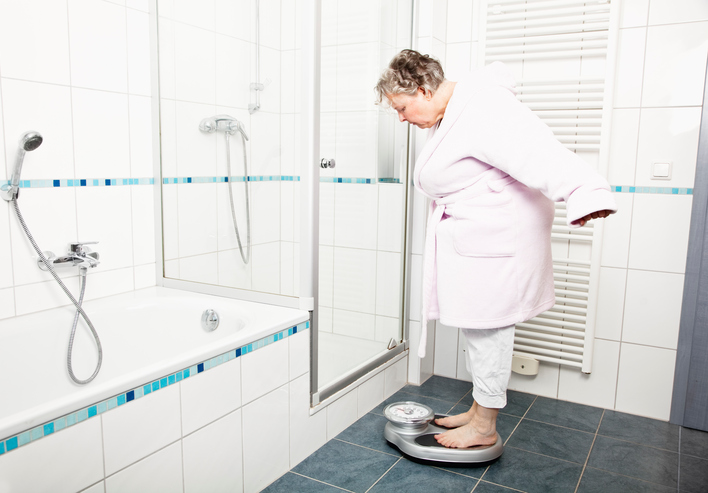Top item on many to-do lists this January is setting a goal to lose weight but this can become increasingly difficult over the age of 40 when the body’s metabolism slows down and without regular weight training, older adults start losing muscle mass. But all hope is not lost, there are small and simple steps you can take right now to avoid weight gain, maintain muscle and improve lifestyle.
Strength Training
Experts agree that building muscle, which helps maintain function in older age as well as burn fat, should be included in any exercise program in addition to cardiovascular activities such as walking or cycling. Strength training helps bones stay stronger and studies have found it can also lower blood pressure, boost brain power and decrease risk for heart disease, cancer and type 2 diabetes. According to the Mayo Clinic, strength training can help older adults preserve and enhance muscle mass at any age and may also reduce the risk for falls, improve quality of life and manage chronic conditions including arthritis and depression. For more information about strength training over 50 visit: http://www.mayoclinic.org/healthy-lifestyle/fitness/in-depth/strength-training/art-20046670?pg=2 .
Diet
Eating the same way you did in your 20s or 30s can pack on the pounds in middle and older age. Instead, try eating lean protein with each meal which will help keep blood sugar steady and reduce cravings for empty calories. Eating plenty of fresh vegetables and fruits with small amounts of whole grains while avoiding refined sugars and saturated fat will also contribute to maintaining a health weight. Soda, chips, cookies, and alcohol are all empty calories that can result in weight gain in older age. A moderately active 50-year-old woman needs about 1,800 calories per day, according to the National Institute on Aging, and men of the same age require about 2,400 calories. By choosing nutrient-rich foods and getting at least two and a half hours of physical activity a week, (broken down into 10-20 minute sessions) a healthy weight can be maintained in older age.
Rest
Getting enough rest is also important to regulating metabolism; aim for 7 to 9 hours per night. When we are tired, we are more likely to give in to the temptation of sugary or fatty foods. The Nurses’ Health Study, which followed 68,000 middle-aged American women over 16 years, found that those who slept five hours or less were more likely to become obese and increase their risk for type 2 diabetes. To learn more about sleep and weight control, visit the Harvard School of Public Health website at: https://www.hsph.harvard.edu/obesity-prevention-source/obesity-causes/sleep-and-obesity/ .






Add Your Voice
0 Comments
Join the Discussion